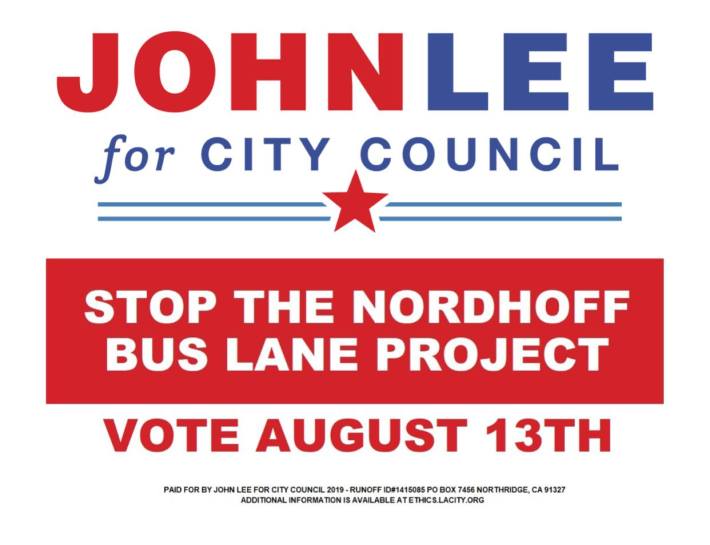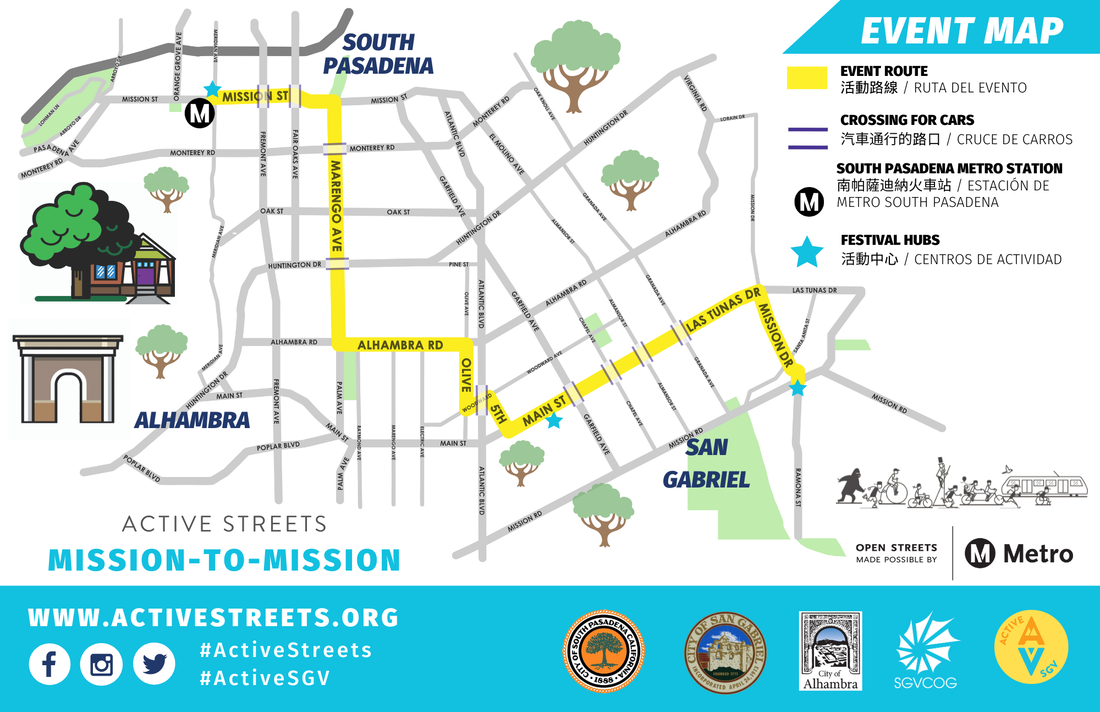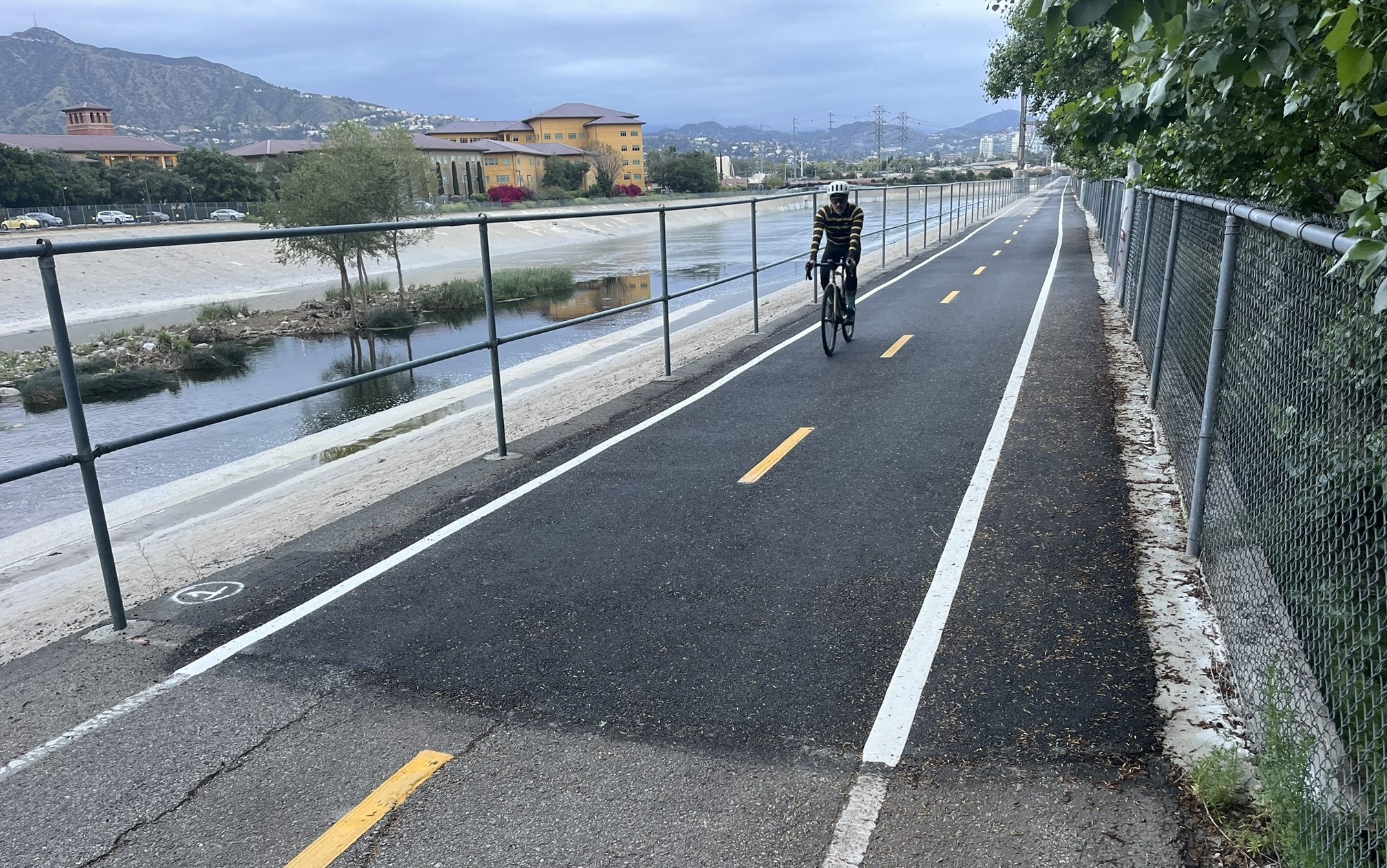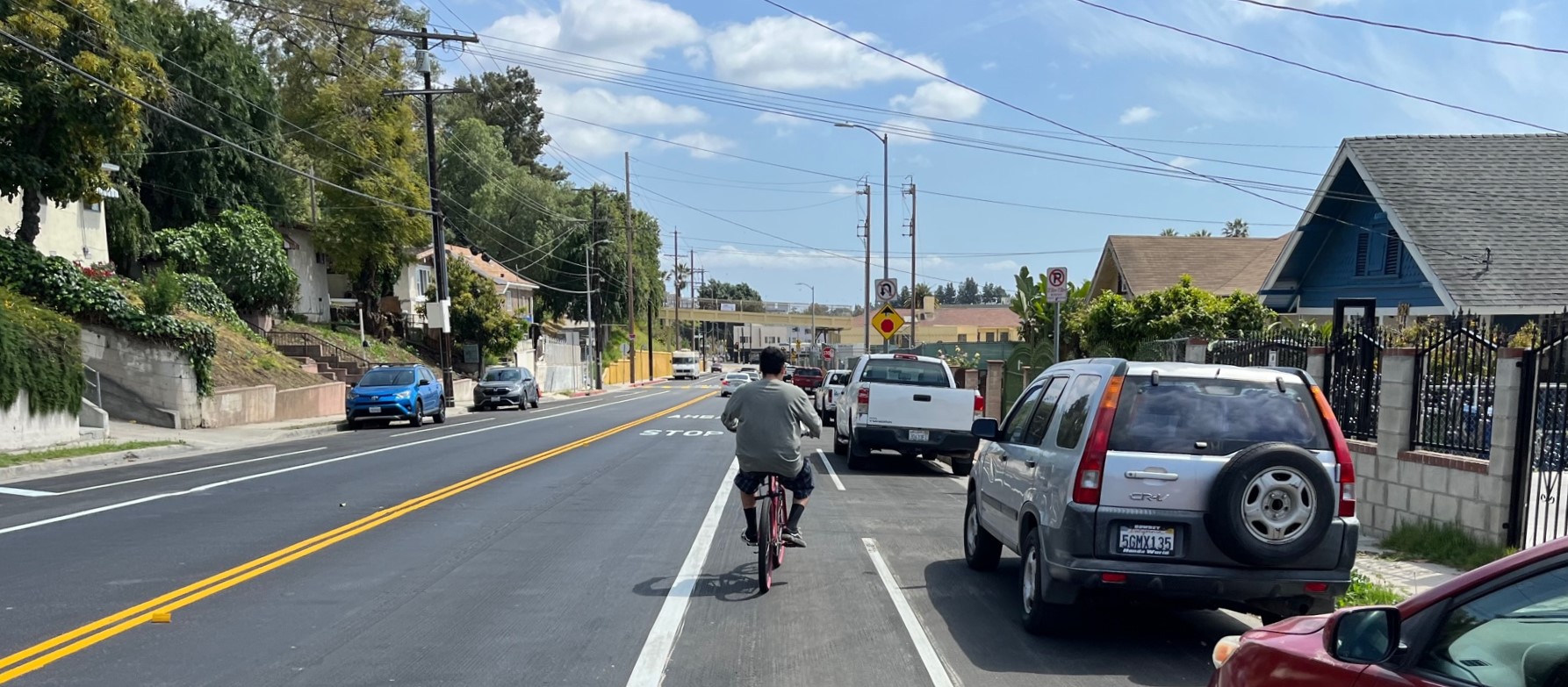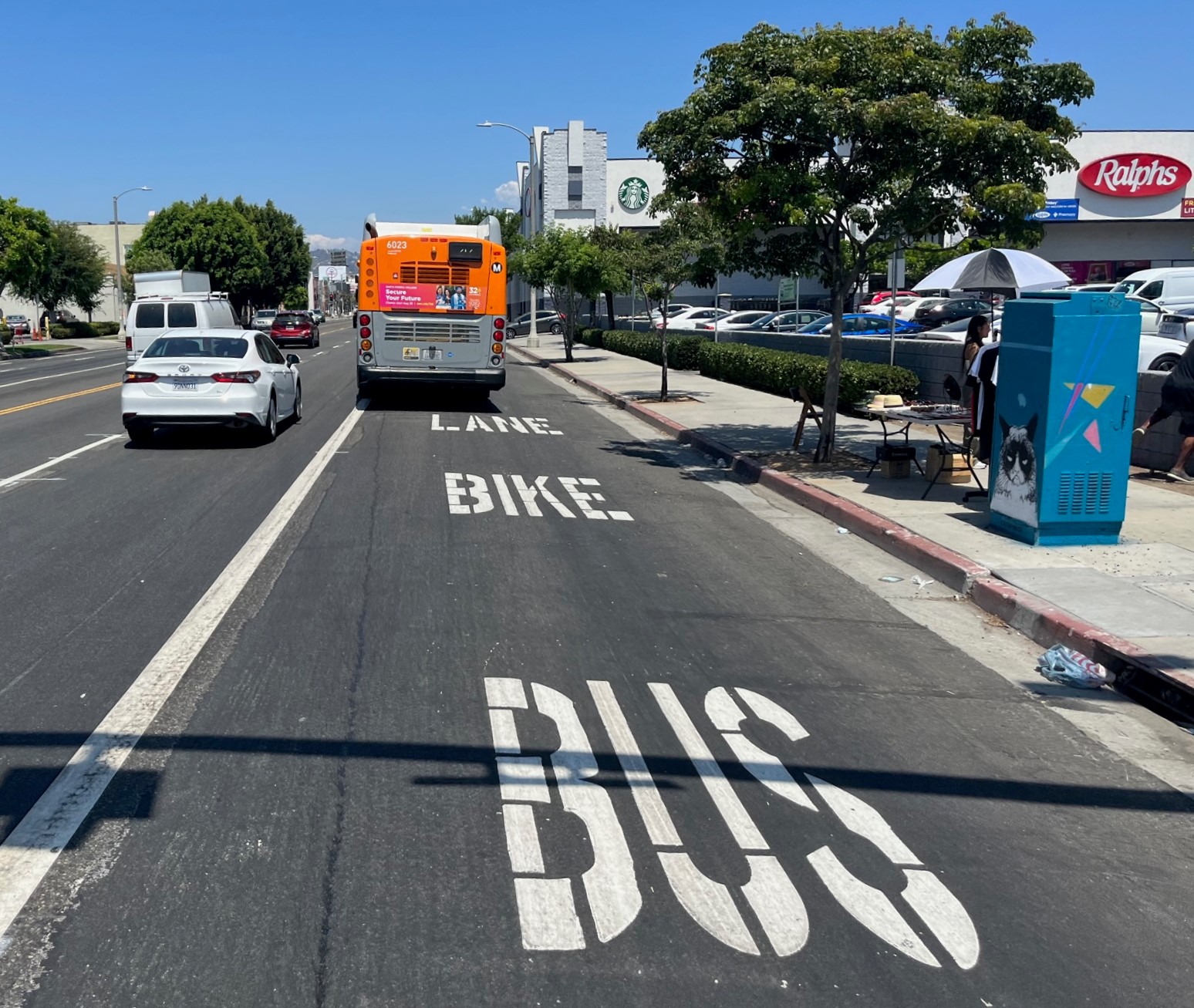Valley City Council August 13 Election Presents Stark Contrast Between Lee and Lundquist
4:48 PM PDT on August 1, 2019
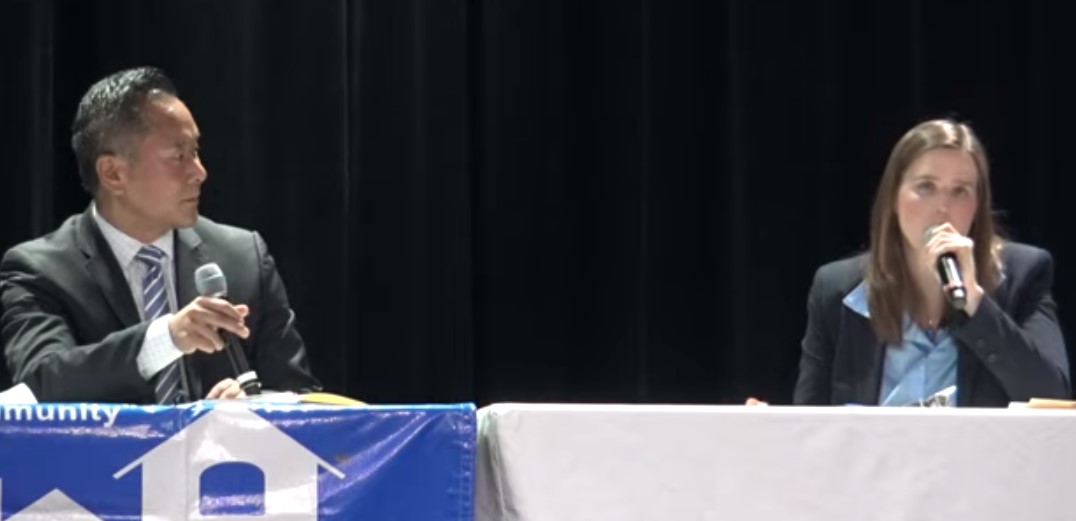
John Lee and Lorraine Lundquist at a recent candidates debate – via YouTube
In just under two weeks, northwest San Fernando Valley voters will go to the polls to elect a new L.A. City Councilmember. The two candidates vying for the post, Loraine Lundquist and John Lee, present stark contrasts on many issues. As an educational nonprofit, Streetsblog L.A. does not endorse electoral candidates, so this article is to help readers educate themselves about both candidates.
Last year, L.A. City Councilmember Mitch Englander left his position to become a lobbyist, setting the stage for a wide-open election this year. The Council District 12 primary election featured more than a dozen candidates. First and second place finishers Lundquist (8,635 votes - 19.74% of the total) and Lee (8,197 votes - 18.74%) advanced to the August 14 runoff.
Brief Candidate Bios and Endorsements
John Lee is a longtime City Hall staffer who served as former Councilmember Englander’s chief of staff. He is the son of South Korean immigrants. He began working for the city under Councilmember Joel Wachs and also worked under Councilmember Greig Smith. A former staffer accused Lee and Englander of sexually harassing her, though they both denied the charges. The city settled out of court with a $75,000 pay-out. Additional bio at John Lee campaign website.
Lee is endorsed by law enforcement and firefighter associations, trade unions, business groups, and others.
Loraine Lundquist is an environmental activist and astrophysicist who teaches at Cal State Northridge. She is co-chair of the homelessness committee of Northridge East Neighborhood Council, and a founding member of the West Valley Neighborhood Alliance on Homelessness. Additional bio at Loraine Lundquist campaign website.
Lundquist is endorsed by: L.A. Times, Bike the Vote L.A., trade unions, environmental organizations, and others.
Priorities:
Lee's website states that his priorities include addressing homelessness, keeping safe and clean streets, and opposing bus rapid transit on Nordhoff Street.
Lundquist's website states that her priorities include: transitioning to a new clean energy green economy, addressing homelessness/housing crises, and delivering city services.
Positions: Bus Rapid Transit
One prominent issue dividing the candidates is their stand on Metro's planned North San Fernando Valley Bus Rapid Transit. Valley BRT project opposition has been led by a perennial CD12 candidate who ran in this year's election, but failed to make the runoff.
In a recent candidate debate, when asked for his views on transit-oriented development, Lee responded repeatedly that he is "100 percent against this [Nordhoff BRT] project." Lee said that the project "definitely" would trigger up-zoning, which "Sacramento is trying to push on us." Lee's website has this:
The proposed busway would almost certainly trigger automatic up-zoning along the route. This will lead to higher density projects to be built without input from the community. Parking for such developments will inevitably overflow into our neighborhoods.
Lundquist favors using the Metro BRT project money to improve transit, and supports further study, including traffic studies. Her website tells of her support for "making public transit frequent, fast, and more accessible" and "redesign[ing] our transit corridors so that buses do not share the right of way with cars."
At the debate, Lundquist responded to the transit-oriented development question by saying she supported more affordable mixed-use housing near the Chatsworth Metrolink Station and CSUN.
Positions: Climate Change
Lundquist has made addressing climate change a central tenet of her campaign. She is pushing for a "Green New Deal for Los Angeles" that would feature 100 percent carbon-neutral electricity by 2025.
Lee says that he not a climate denier. He criticizes Lundquist's green new deal as an "elitist plan" that would harm the economy.
Positions: Active Transportation
In their responses to questions from Bike the Vote, both candidates profess support for safer streets for all users.
Lee's response includes few specifics:
We need to take a holistic approach that includes improving the efficiency and coordination of transit schedules, so they better serve transit demand, investing in cycling infrastructure, improving pedestrian safety, and better integrating our transit systems so they complement one another. Investing in bike lanes and their infrastructure is key. I will work with stakeholders to identify areas of improvement and look to invest in biking infrastructure, including protecting existing bike lanes and their infrastructure, expanding the connectivity of the bike lane system, and investing in safety measures.
Lundquist's response describes how her family uses green transportation, including her own bike commute to CSUN. She further states:
We’ve inherited a transportation infrastructure designed for cars with acres of impervious surfaces devoted to wide roads and parking lots. We need to enhance these corridors for multi-modal transit with dedicated bus lanes, bike lanes, and green spaces that enhance walkability. . . . Every person deserves the right to move freely around our city regardless of their age or economic means. That’s why I support the Mobility Bill of Rights and introduced a motion that my Neighborhood Council formally endorse it. As a member of L.A. City Council, I will advocate that transit within the City and Metro systems be free to all. Increased ridership will decrease congestion and allow us to provide a wider range of transit options.
Positions: Homelessness
Both candidates say that addressing homelessness is a priority, but their approaches differ.
At the recent debate, when responding to questions about homelessness, Lee primarily described his support for the "jewel" nonprofit San Fernando Valley Rescue Mission Home, where he serves on the board. He stated his support for safe parking programs in industrial areas, but "not in our neighborhoods." When questioned on how to make housing more affordable, Lee supported cutting city fees and waiving CEQA (California Environmental Quality Act) environmental review processes.
Lee's website features an eight-point "Action Plan to End Homelessness." It includes: "police patrols and Neighborhood Safety Teams... dedicated to stopping crime stemming from homeless encampments," a housing task force, tax incentives for employers, audits of city programs/departments, and a ban on all long-term RV parking in neighborhoods, instead creating 'safe parking zones' on unused city lots away from schools and neighborhoods.
Lundquist stresses addressing root causes of homelessness by making housing affordable. At the debate, Lundquist countered Lee's Rescue Mission example with an emphasis on the government's role in spending city funds to address homelessness and housing, including bringing bridge housing to CD12.
Lundquist's website states:
I believe that a comprehensive approach to affordable housing will have benefits across the economic spectrum: low income workers sometimes fall behind and end up homeless on the streets, students and middle income workers struggle to meet rent, and higher income residents have trouble leaping into the housing market and fending off foreclosure. Starting with permanent supportive housing for the homeless will clean up our streets and save taxpayer money.
Stay in touch
Sign up for our free newsletter
More from Streetsblog Los Angeles
Metro Board Funds Free Student Transit Pass Program through July 2025
Metro student free passes funded another year - plus other updates from today's Metro board meeting
Eyes on the Street: New Lincoln Park Avenue Bike Lanes
The recently installed 1.25-mile long bikeway spans Lincoln Park Avenue, Flora Avenue, and Sierra Street - it's arguably the first new bike facility of the Measure HLA era
